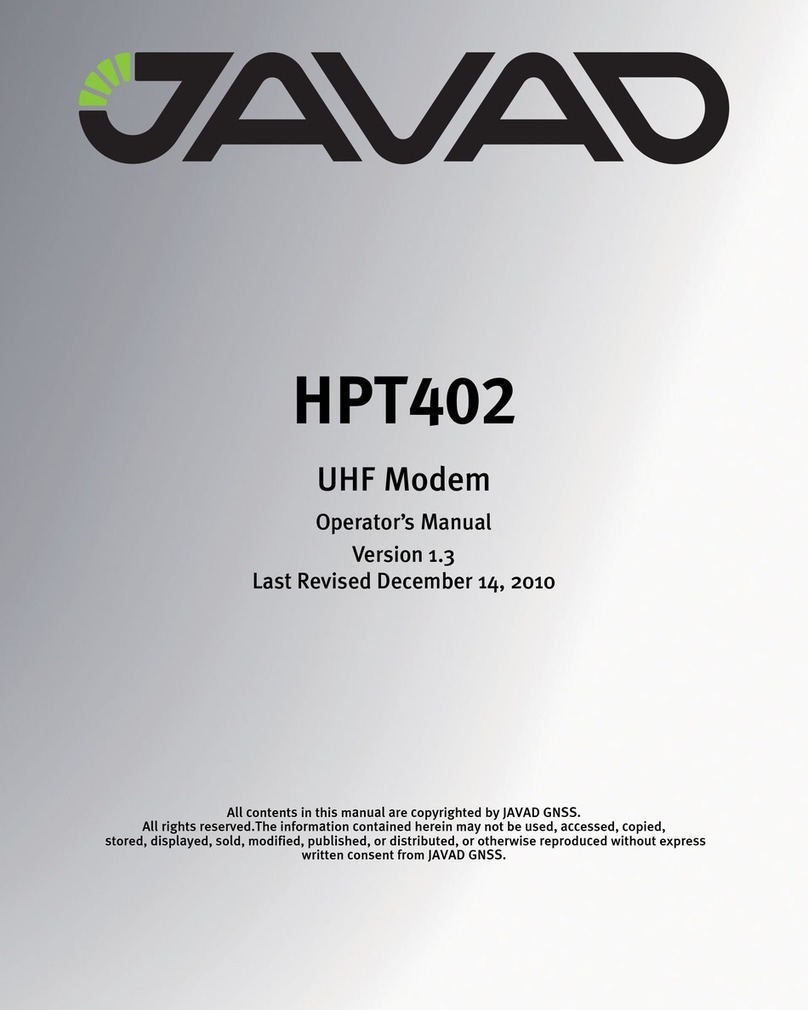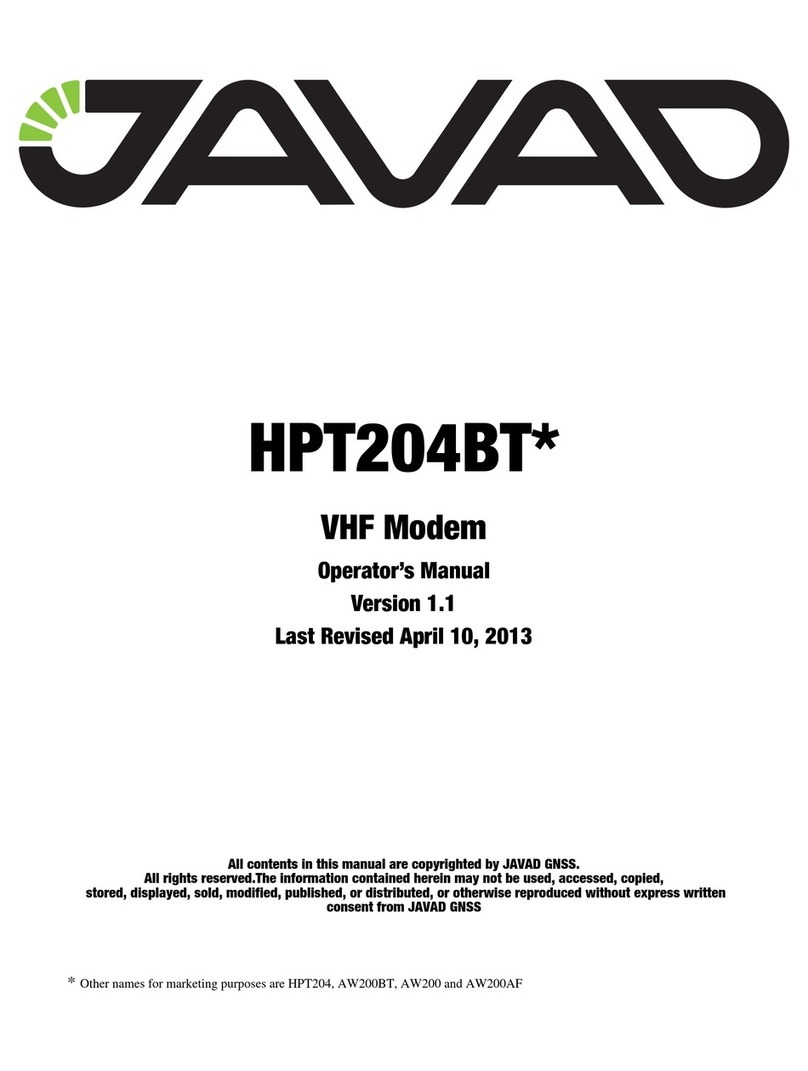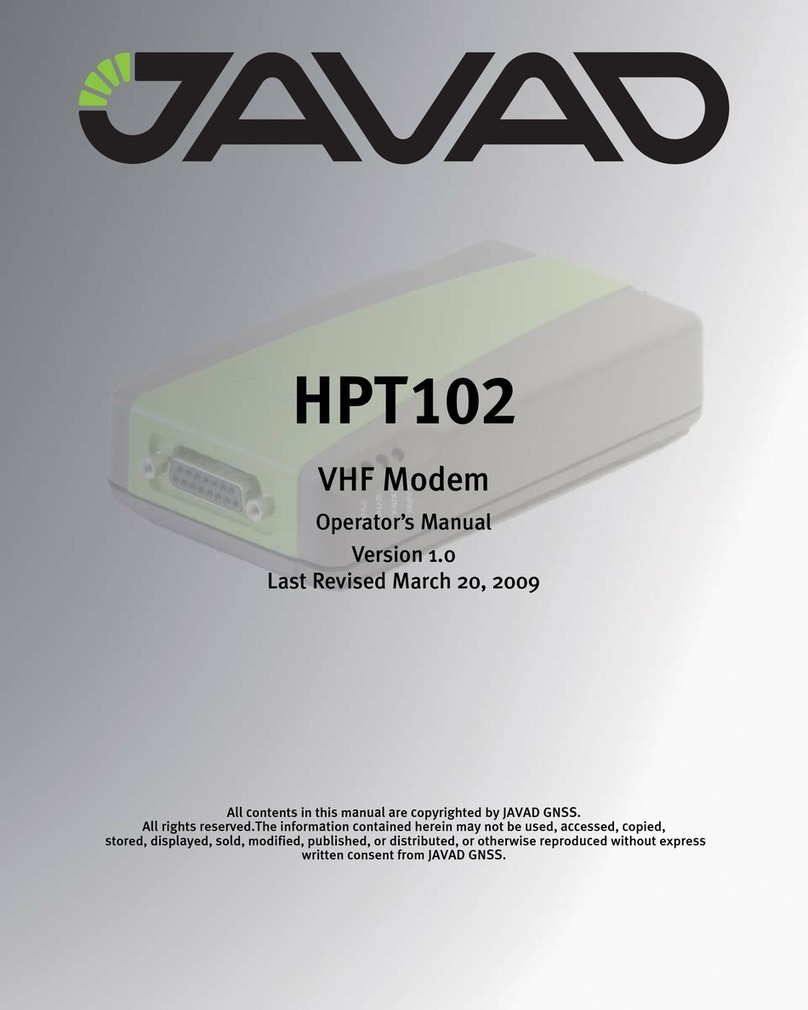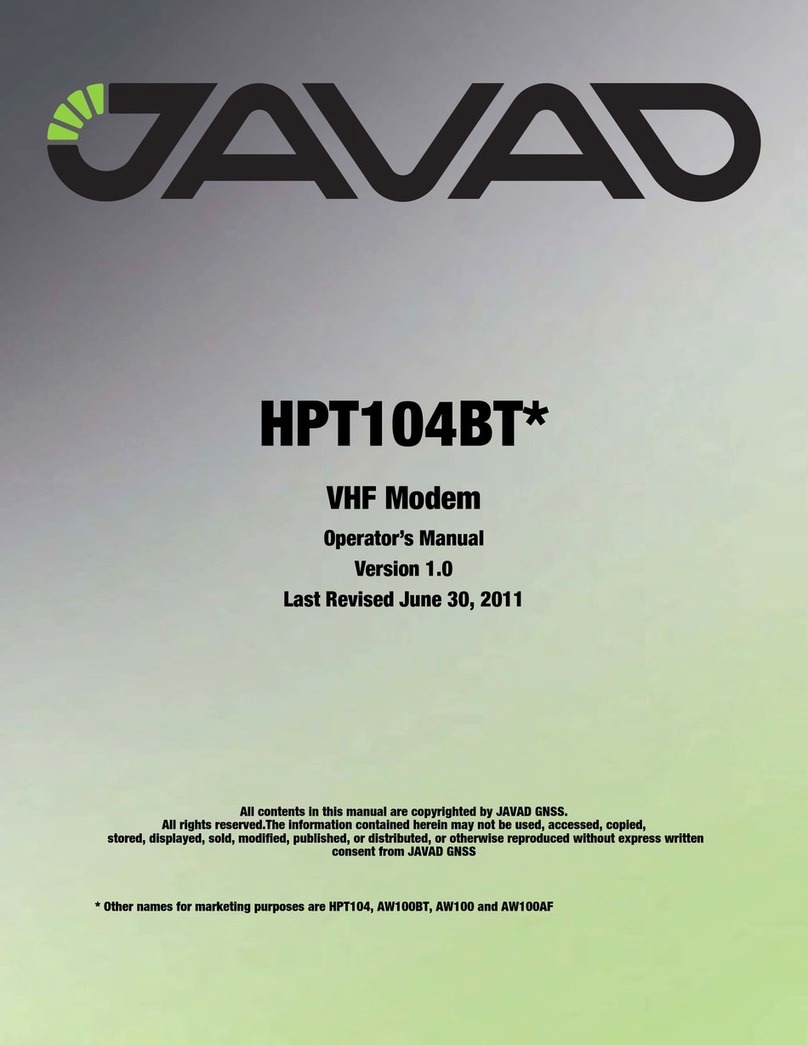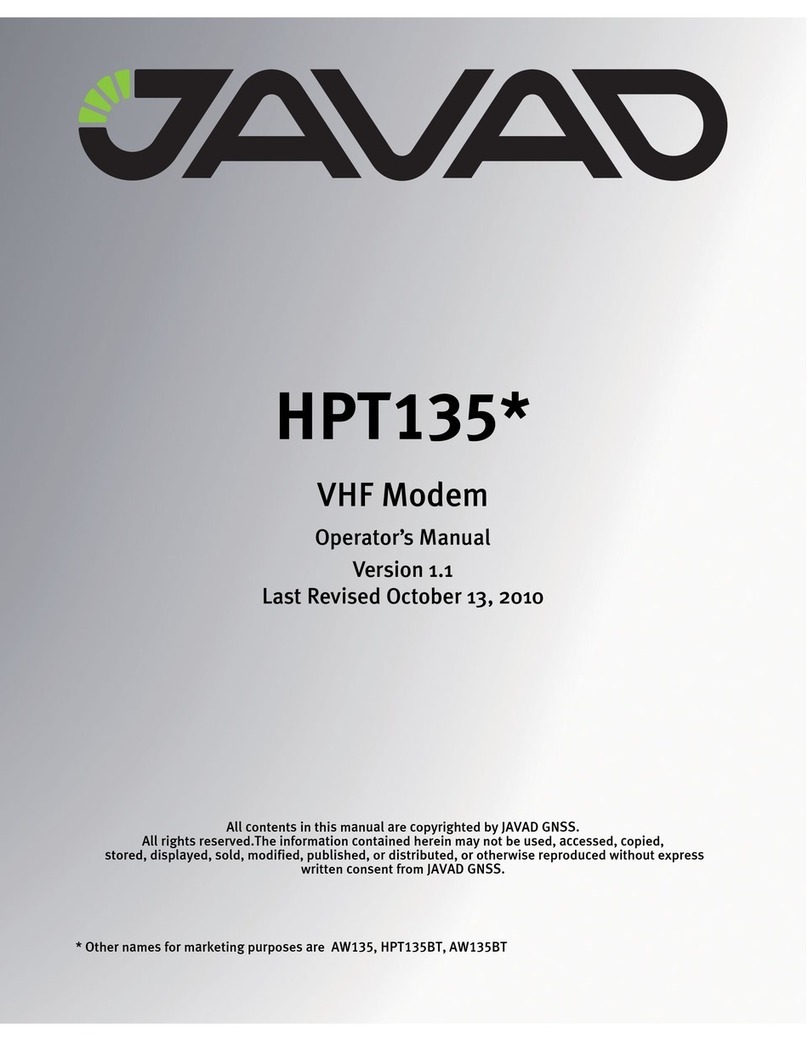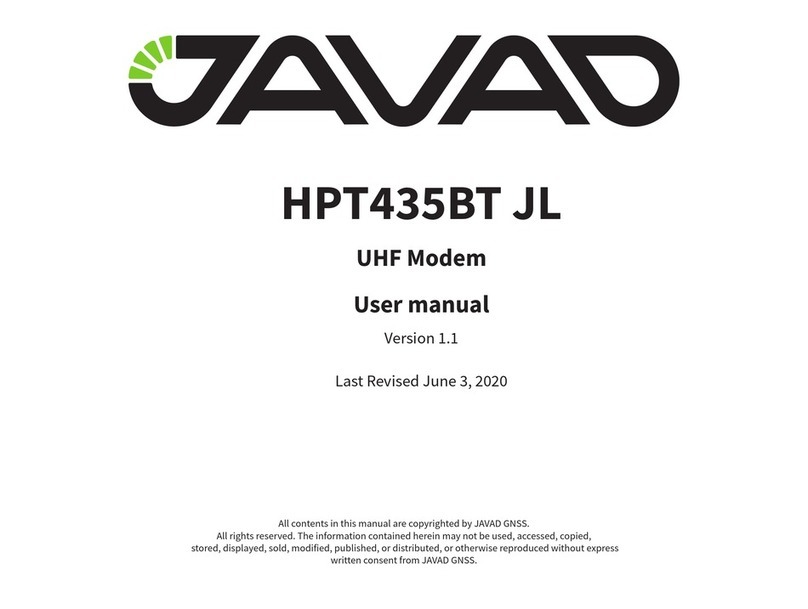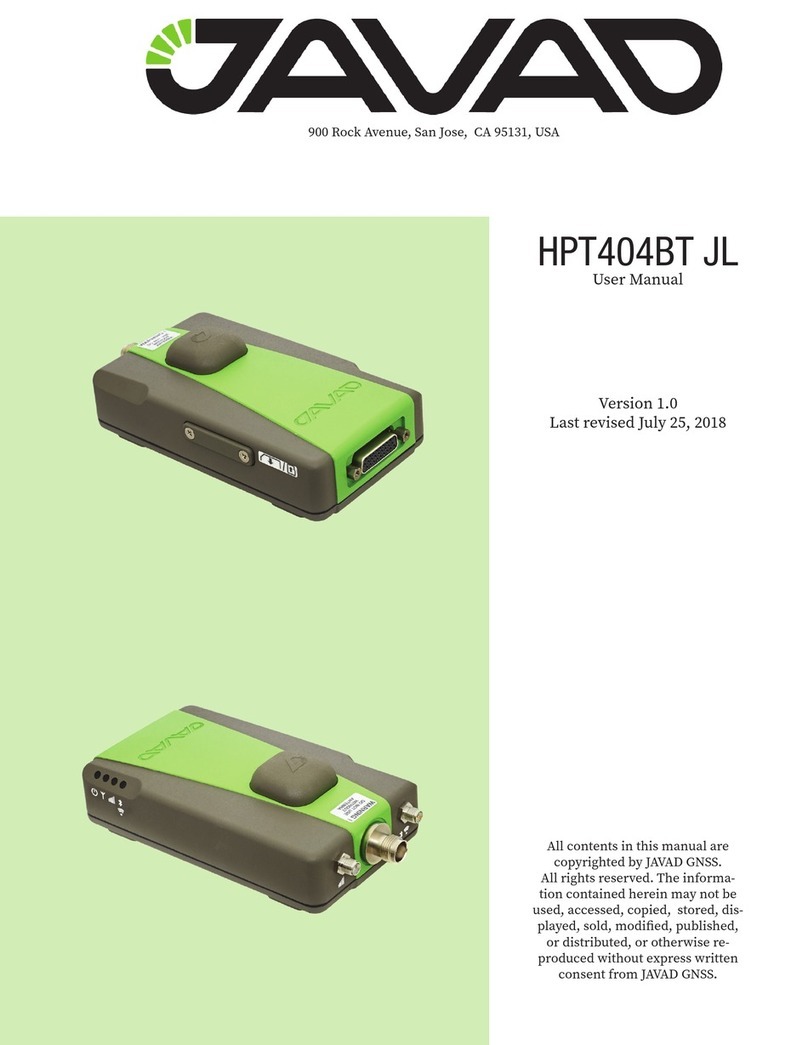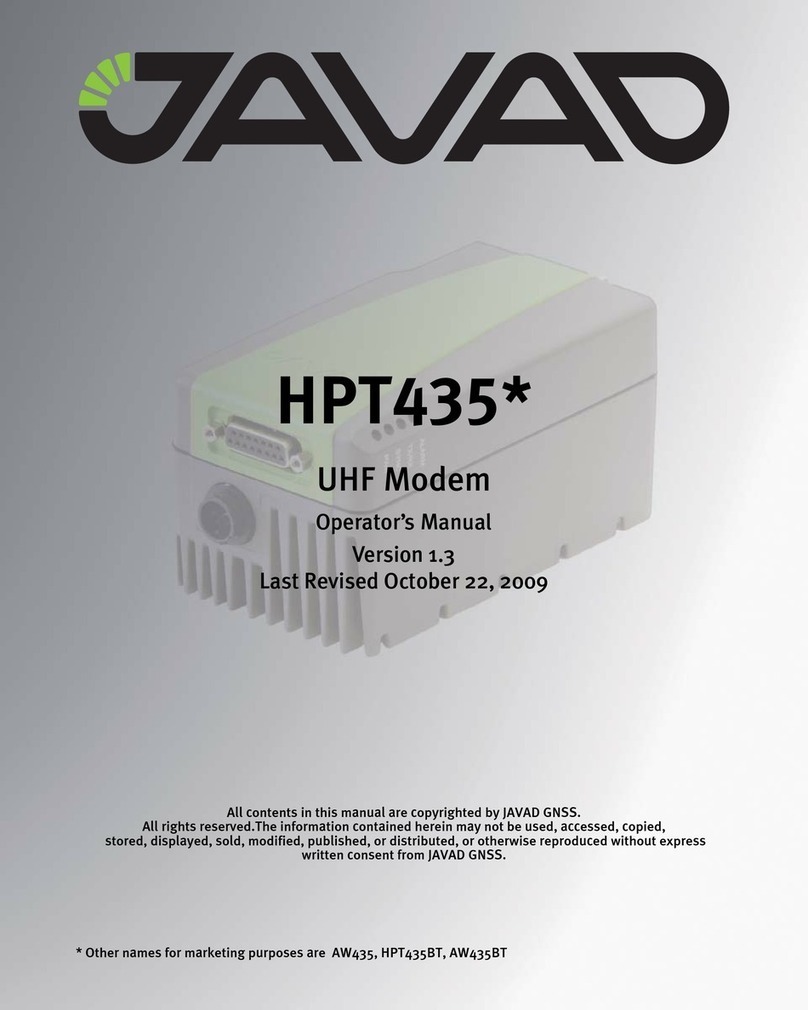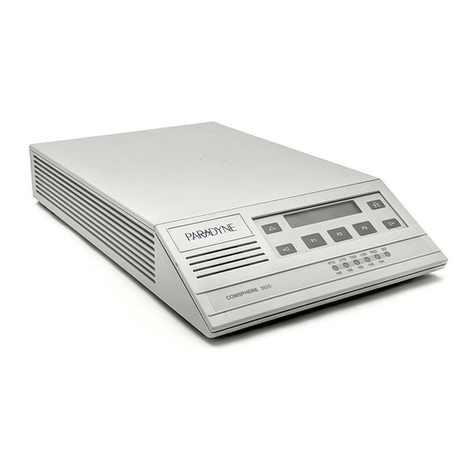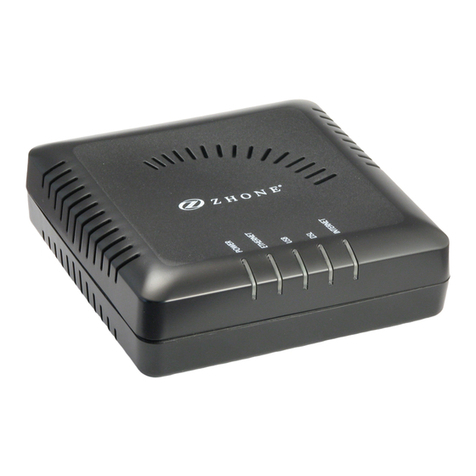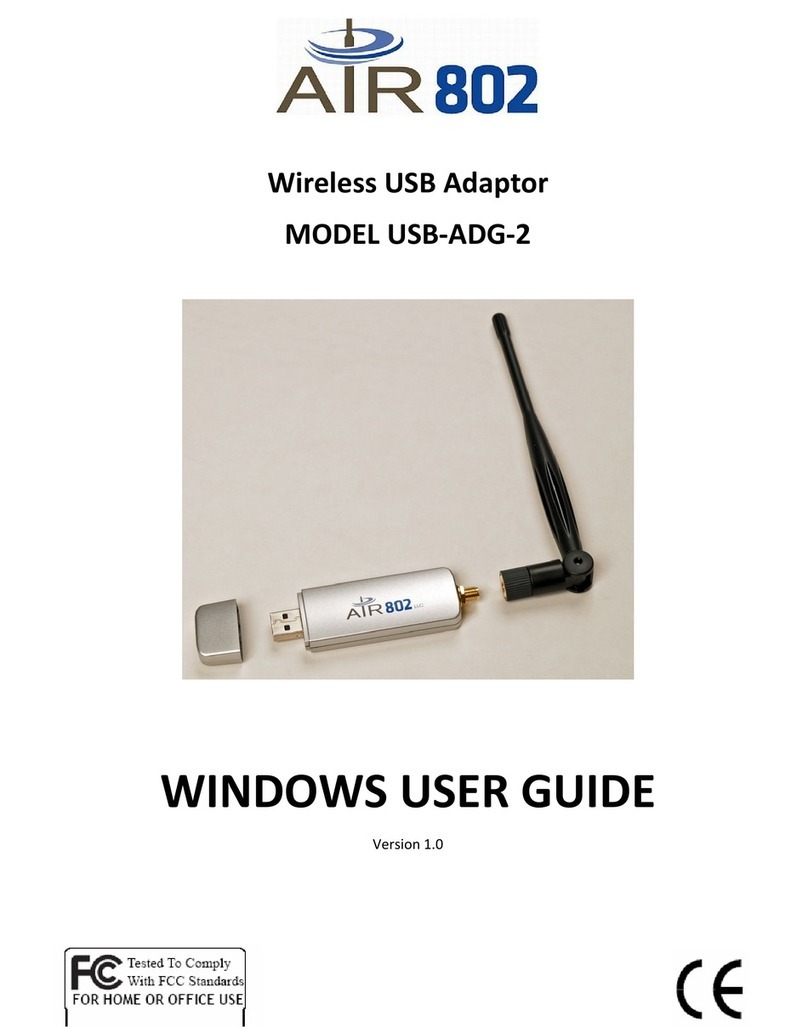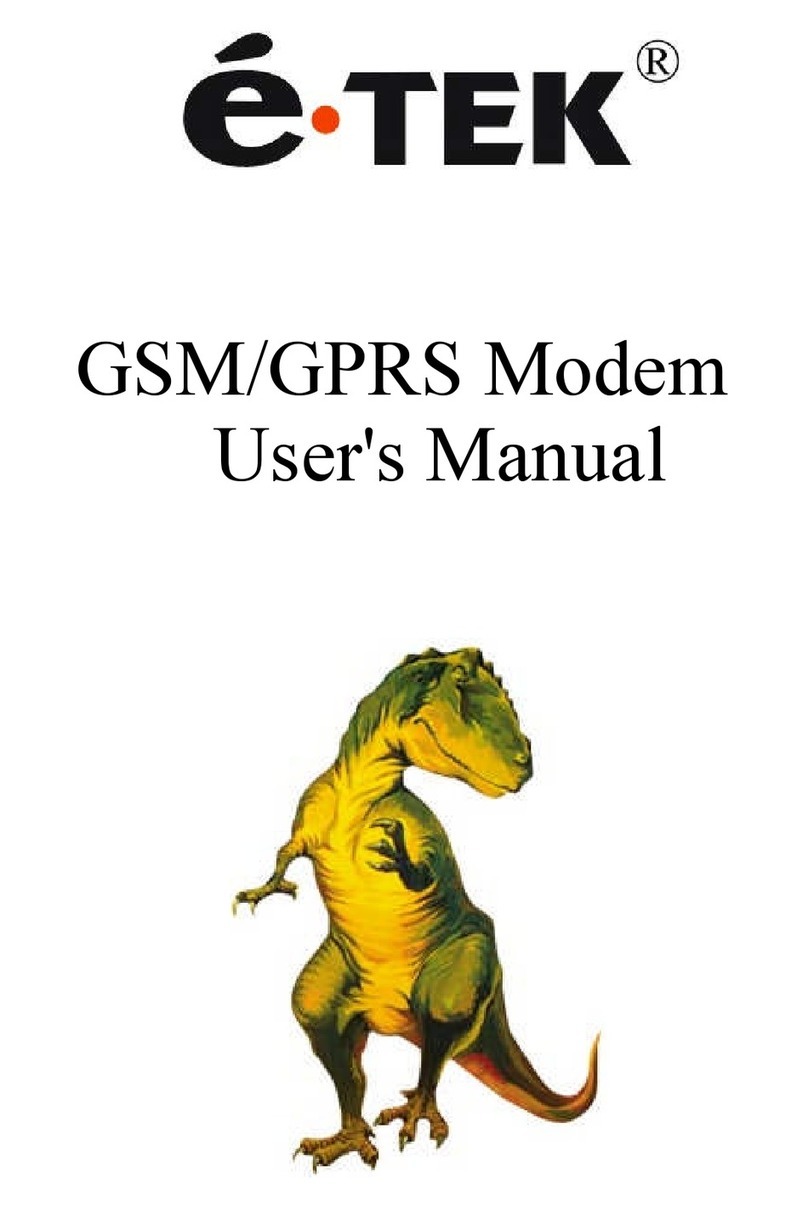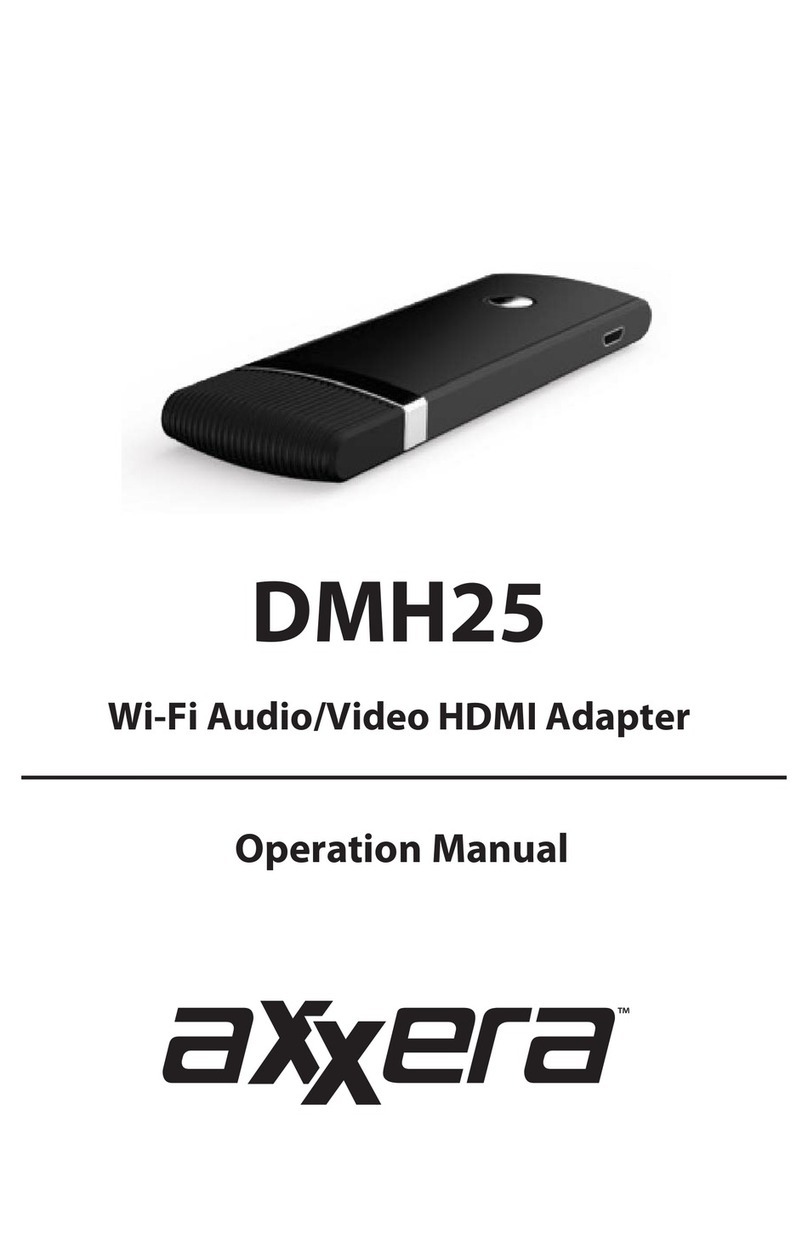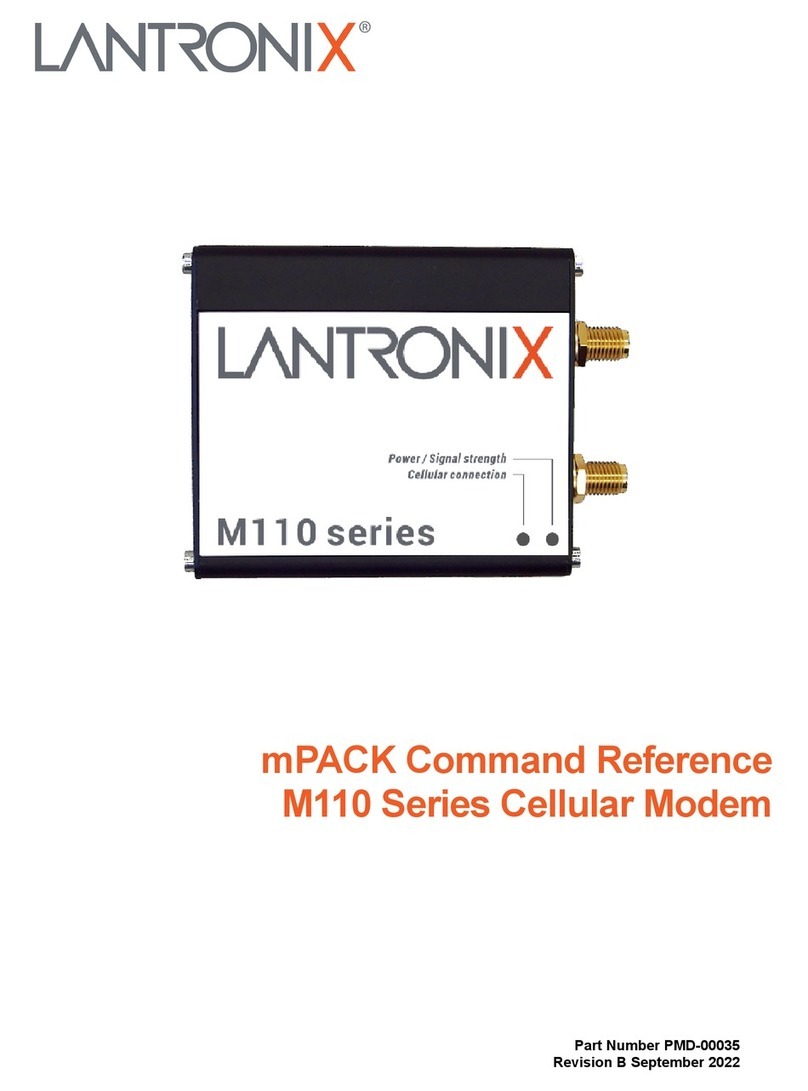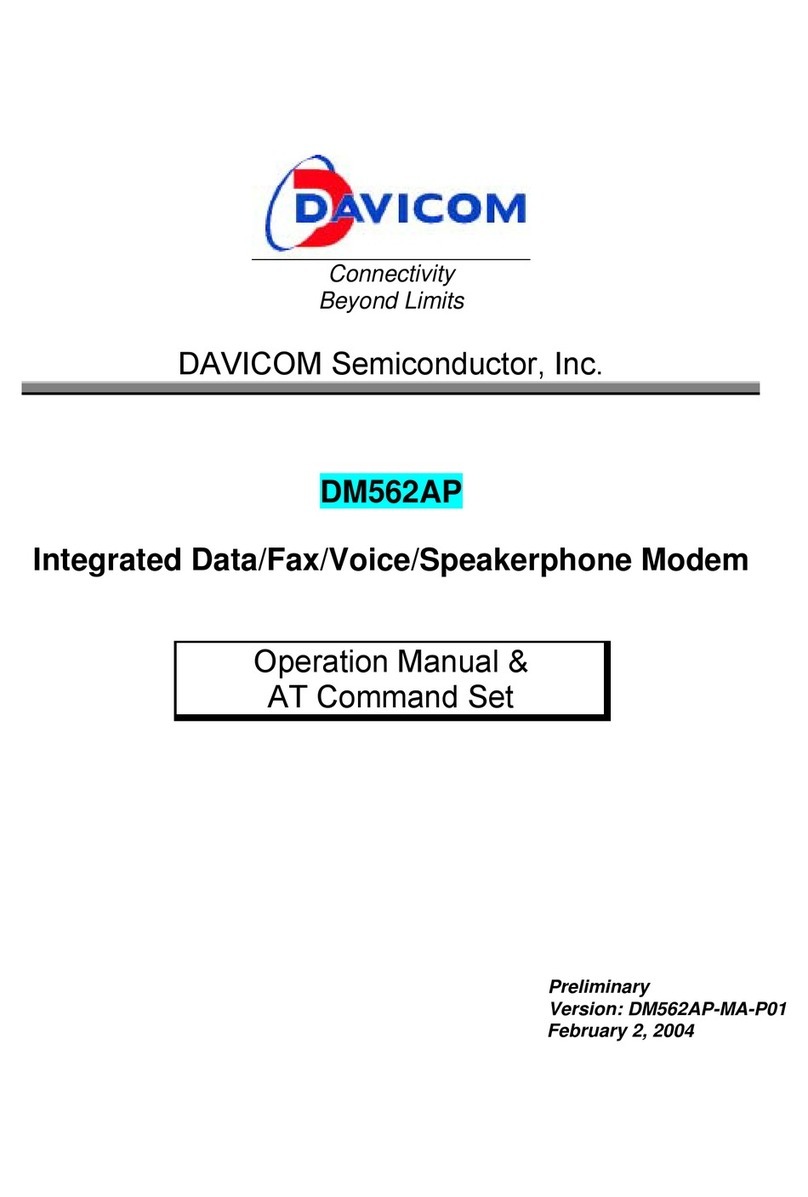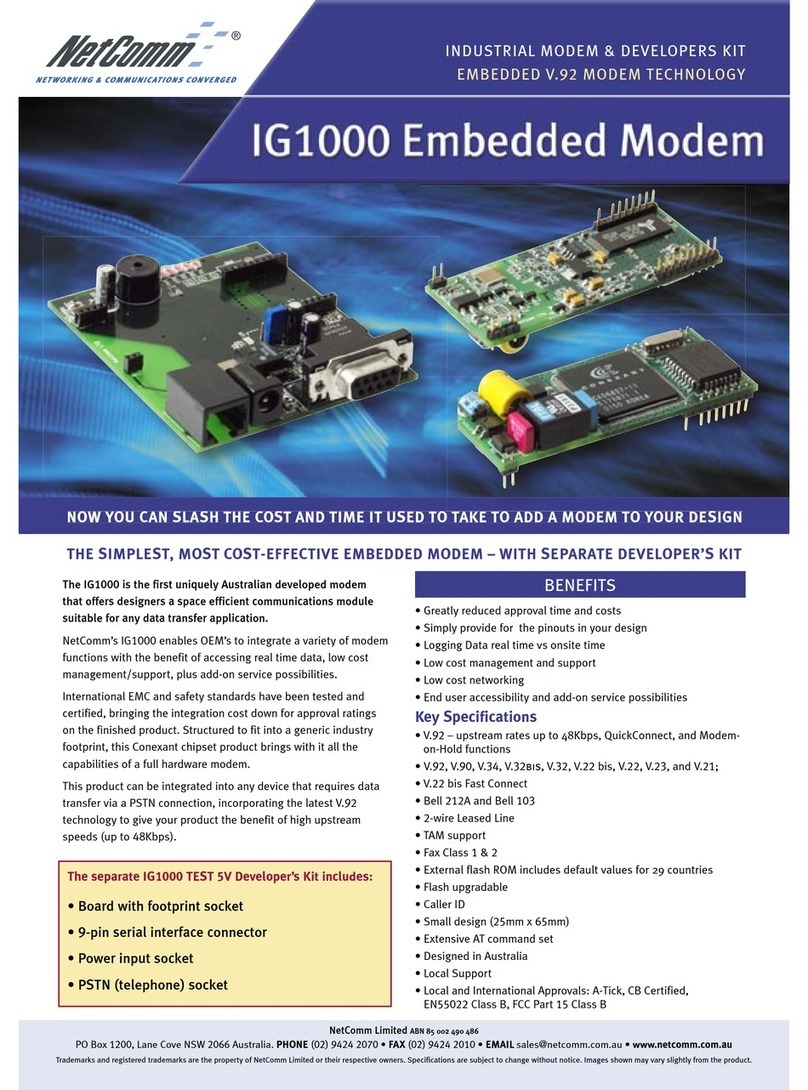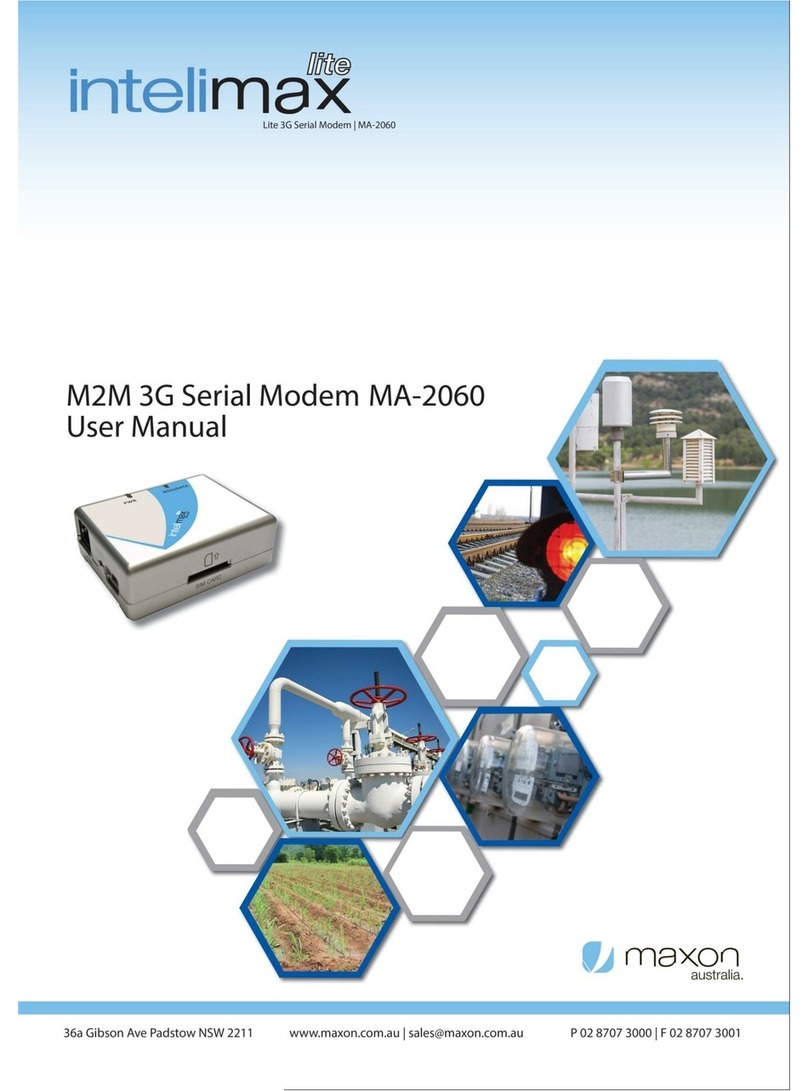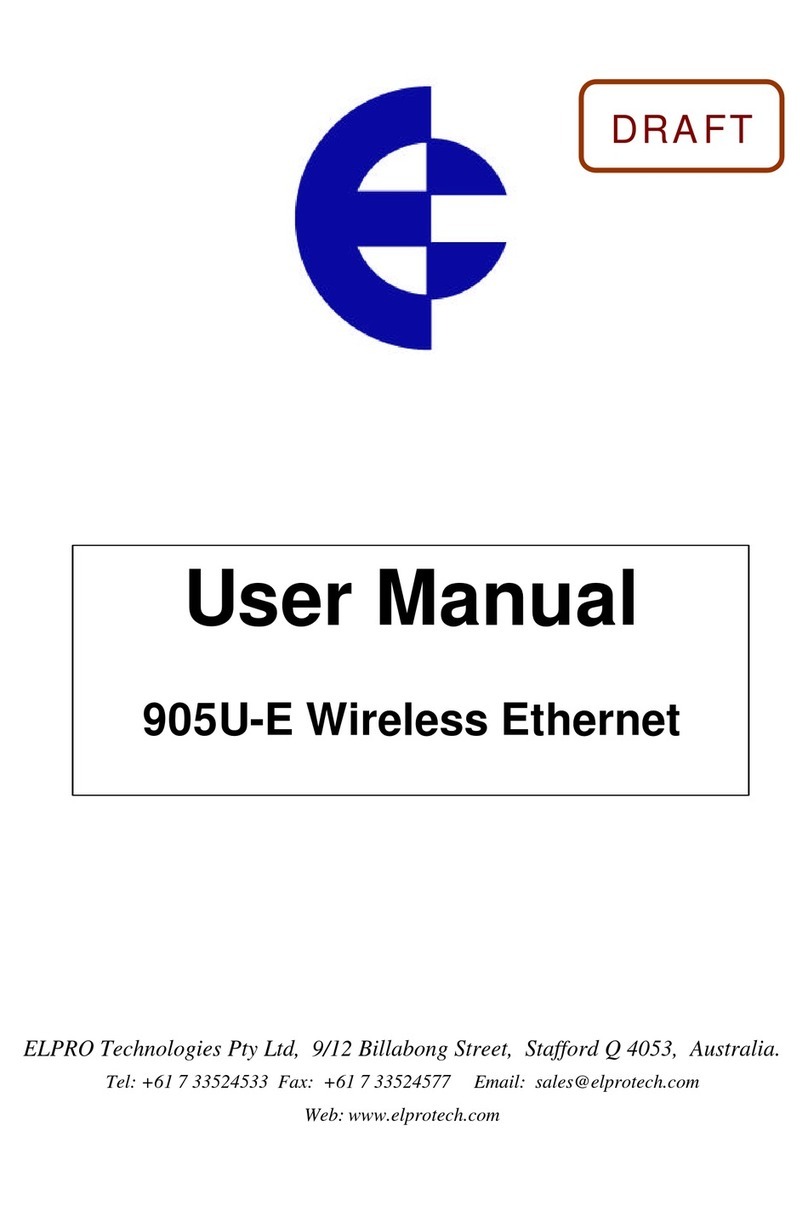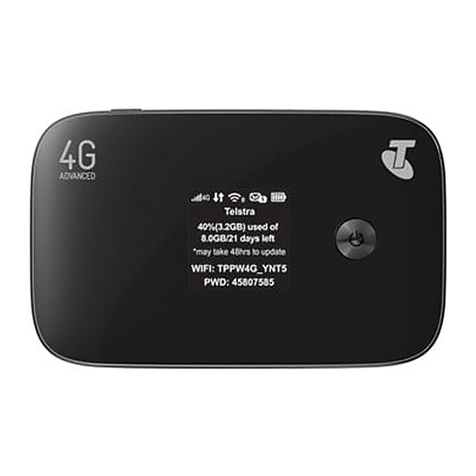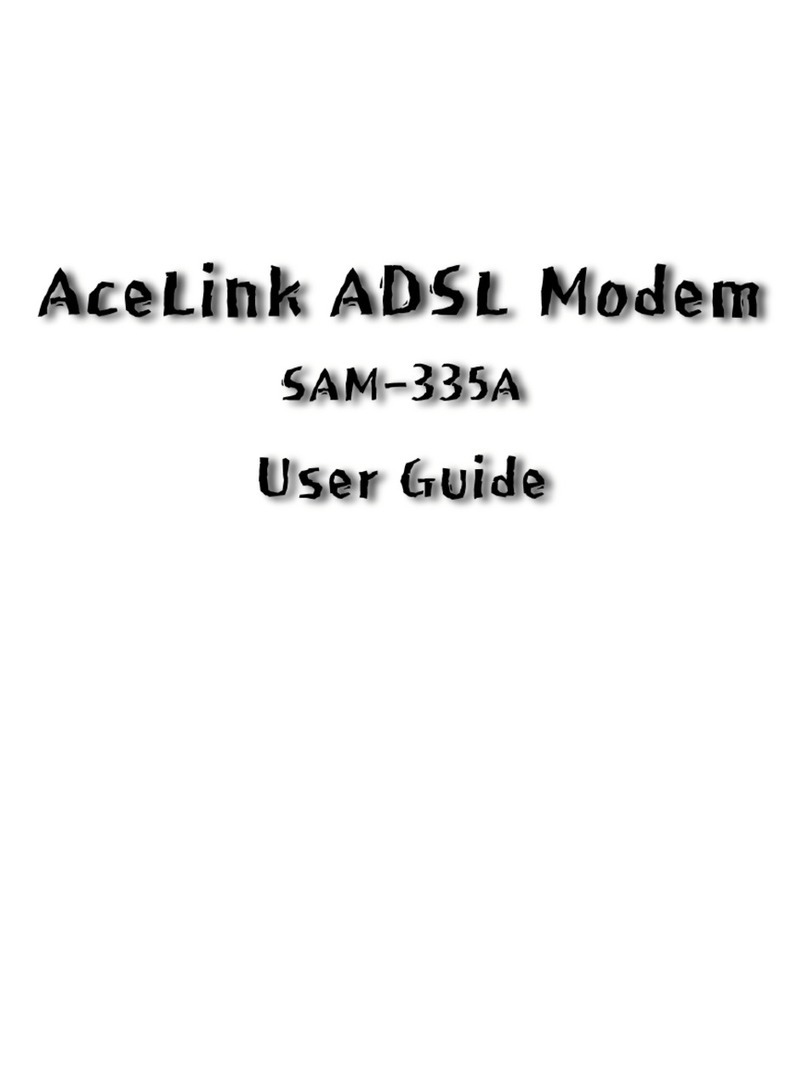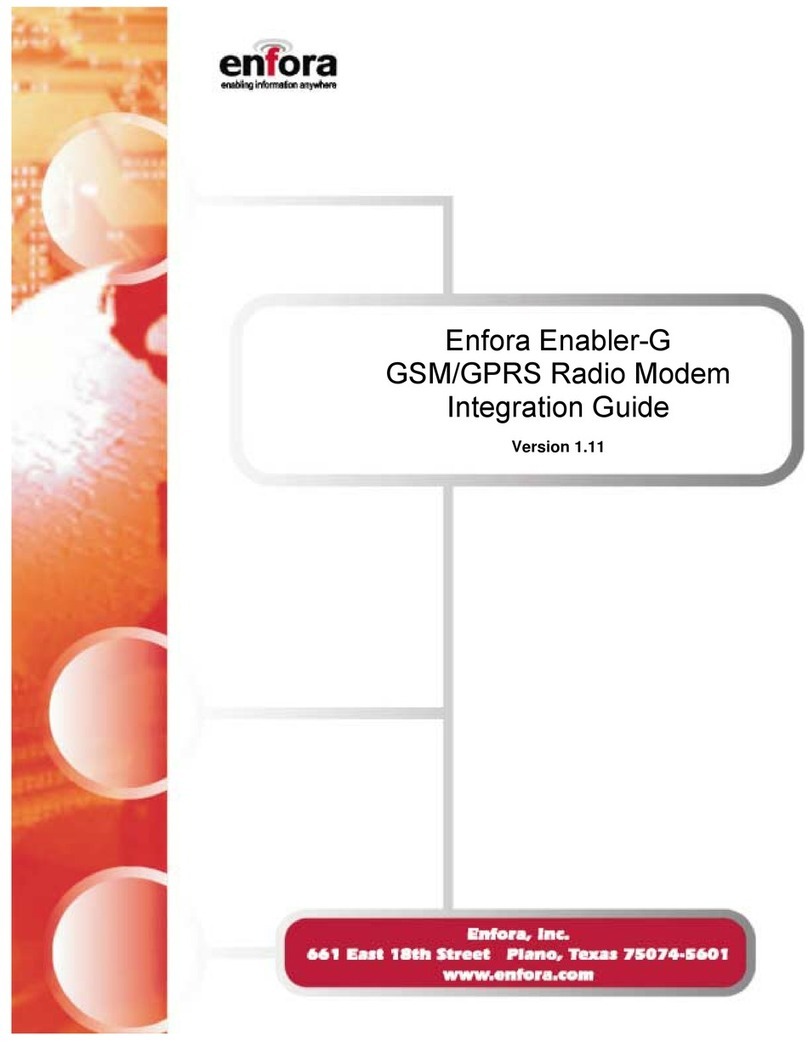
5www.javad.com
PREFACE
Thank you for purchasing this product. The materials available in this Manual (the “Manual”) have been
prepared by JAVAD GNSS, Inc. (“JAVAD GNSS”) for owners of JAVAD GNSS products. It is designed
to assist owners with the use of HPT225BT and its use is subject to these terms and conditions (the
“Terms and Conditions”).
Note: Please read these Terms and Conditions carefully.
Terms and Conditions
USE – JAVAD GNSS modems are designed to be used by a professional. The user is expected to have a
good knowledge and understanding of the user and safety instructions before operating, inspecting or
adjusting.
COPYRIGHT – All information contained in this Manual is the intellectual property of, and copyrighted
material of JAVAD GNSS. All rights are reserved. You may not use, access, copy, store, display, create
derivative works of, sell, modify, publish, distribute, or allow any third party access to, any graphics,
content, information or data in this Manual without JAVAD GNSS’ express written consent and may only
use such information for the care and operation of your HPT225BT. The information and data in this
Manual are a valuable asset of JAVAD GNSS and are developed by the expenditure of considerable work,
time and money, and are the result of original selection, coordination and arrangement by JAVAD GNSS.
TRADEMARKS – HPT225BT™, TRIUMPH-1™, ModemVU™, JAVAD GNSS®are trademarks or
registered trademarks of JAVAD GNSS. Windows®is a registered trademark of Microsoft Corporation;
Bluetooth®word mark is owned by the Bluetooth SIG, Inc. Product and company names mentioned
herein may be trademarks of their respective owners.
DISCLAIMER OF WARRANTY – EXCEPT FOR ANY WARRANTIES IN THIS MANUAL OR A
WARRANTY CARD ACCOMPANYING THE PRODUCT, THIS MANUAL AND THE HPT225BT
MODEM ARE PROVIDED “AS-IS.” THERE ARE NO OTHER WARRANTIES. JAVAD GNSS
DISCLAIMS ANY IMPLIED WARRANTY OF MERCHANTABILITY OR FITNESS FOR ANY
PARTICULAR USE OR PURPOSE. JAVAD GNSS AND ITS DISTRIBUTORS SHALL NOT BE
LIABLE FOR TECHNICAL OR EDITORIAL ERRORS OR OMISSIONS CONTAINED HEREIN;
NOR FOR INCIDENTAL OR CONSEQUENTIAL DAMAGES RESULTING FROM THE
FURNISHING, PERFORMANCE OR USE OF THIS MATERIAL OR THE HPT225BT MODEM.
SUCH DISCLAIMED DAMAGES INCLUDE BUT ARE NOT LIMITED TO LOSS OF TIME, LOSS
OR DESTRUCTION OF DATA, LOSS OF PROFIT, SAVINGS OR REVENUE, OR LOSS OF THE
PRODUCT'S USE. IN ADDITION, JAVAD GNSS IS NOT RESPONSIBLE OR LIABLE FOR
DAMAGES OR COSTS INCURRED IN CONNECTION WITH OBTAINING SUBSTITUTE
PRODUCTS OR SOFTWARE, CLAIMS BY OTHERS, INCONVENIENCE, OR ANY OTHER
